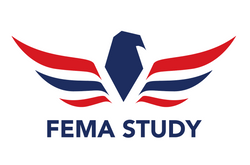Course Details
Residential
Course Description
This course builds on the information provided in E0313, Basic Hazus, by providing an in-depth exploration of the Hazus Earthquake and Tsunami models. An overview of the earthquake and tsunami related inventory components are provided. An emphasis is placed on techniques for defining an earthquake hazard, adjusting parameters for identifying economic and social impacts from earthquakes, and interpreting and applying model outputs. Best practices for using the Earthquake and Tsunami models to support emergency management are identified. Course instruction includes lectures, demonstrations, and multiple hands-on individual and group activities.
Selection Criteria: Federal, state, local, and tribal emergency managers and GIS specialists; planners; and others who support earthquake mitigation and response activities and who wish to expand their Hazus skills beyond those developed in E0313, Basic Hazus.
ACE: Level: Vocational Certificate
ACE: Credit Hours: 4
CECs: 12
Course Objectives
- Explain the key components of the methodology employed in the Hazus Earthquake and Tsunami models for defining the earthquake and tsunami hazards as well as options that users have for refining the hazard definition.
- Identify the key parameters that influence the social and economic impact assessments generated by the Earthquake and Tsunami models.
- Identify and apply best practices for most effectively using the Earthquake and Tsunami models to support emergency management.
Mission Areas
- Common
Prerequisites
- E0313: Basic Hazus
Skills equivalent to those taught in E0190, ArcGIS for Emergency Managers
Disciplines
- Emergency Management
Primary Core Capability
National Preparedness Course Catalog
